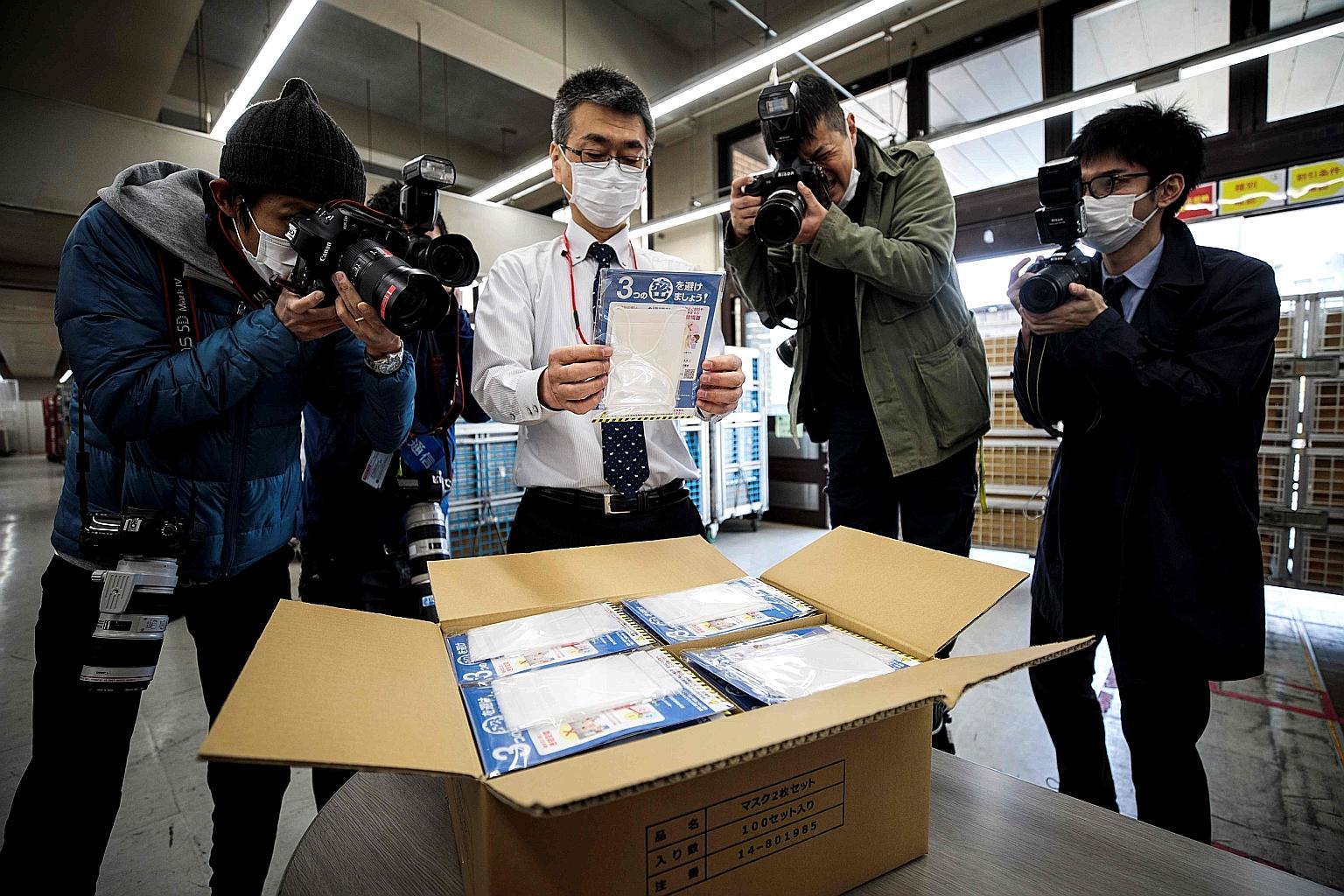Japan widens state of emergency to entire country as virus cases spike
Sign up now: Get ST's newsletters delivered to your inbox

A Japan Post employee showing the media face masks, which will be distributed to residents as part of a government initiative, after they were delivered to a post office in Tokyo yesterday.
PHOTO: AGENCE FRANCE-PRESSE
Walter Sim Japan Correspondent In Tokyo, Walter Sim
Follow topic:
Japan expanded a state of emergency to the whole country yesterday, as the number of Covid-19 cases doubled in one week to top the 9,000 mark.
This puts all 47 prefectures under the decree, which lasts until May 6.
The state of emergency does not carry punitive force, but gives prefectures the power to "strongly request" residents to stay home and appeal to businesses to shut.
There were 9,220 confirmed coronavirus infections and nearly 200 deaths nationwide as at 9pm yesterday. Iwate, in the north-east, is the only one of the 47 prefectures to not have reported a single case.
Prime Minister Shinzo Abe said he wants the blanket decree to raise the sense of urgency throughout the country and limit travel across prefectures. "Infections have been expanding due to the continued movement of people across cities," he said. "Heading into the Golden Week holiday, everybody should avoid non-essential travel."
The week-long stretch starting on April 29 is customarily a bumper season for domestic tourism.
He emphasised everyone should reduce social interaction by 70 per cent to 80 per cent to improve the situation and enable the emergency declaration to be lifted on May 6.
There is no uniform policy mandating business, company and school closures across porous prefecture borders. Tokyo and the neighbouring prefectures have imposed by far the strictest measures, with restaurants to close by 8pm.
The recent spike in cases comes even as Japan has been testing for Covid-19 only at a fraction of its capacity. Plans are now afoot to ease requirements so more can be tested.
Mr Abe said the draft supplementary budget will be reworked so as to give every Japanese citizen cash handouts of 100,000 yen (S$1,325).
The unprecedented measure replaces an initial plan to give 300,000 yen to each household whose income has been slashed because of the outbreak, and comes amid bipartisan calls for much bolder action.
Mr Abe has been on the back foot amid public perceptions of a lukewarm response by the government to the pandemic. Media polls last weekend showed that four in five Japanese felt the state of emergency declaration had come too late.
He is now facing even more pressure over a trip that his wife Akie made to the south-western prefecture of Oita on March 15.
She had joined a group tour of 50 people, said the report in the Shukan Bunshun tabloid. A tour organiser cited Mrs Abe as having said: "I was thinking about going somewhere because the coronavirus cleared out my schedule."

